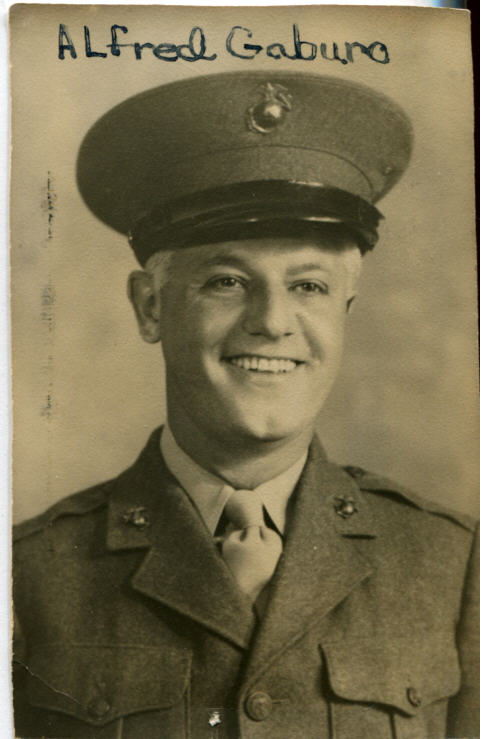
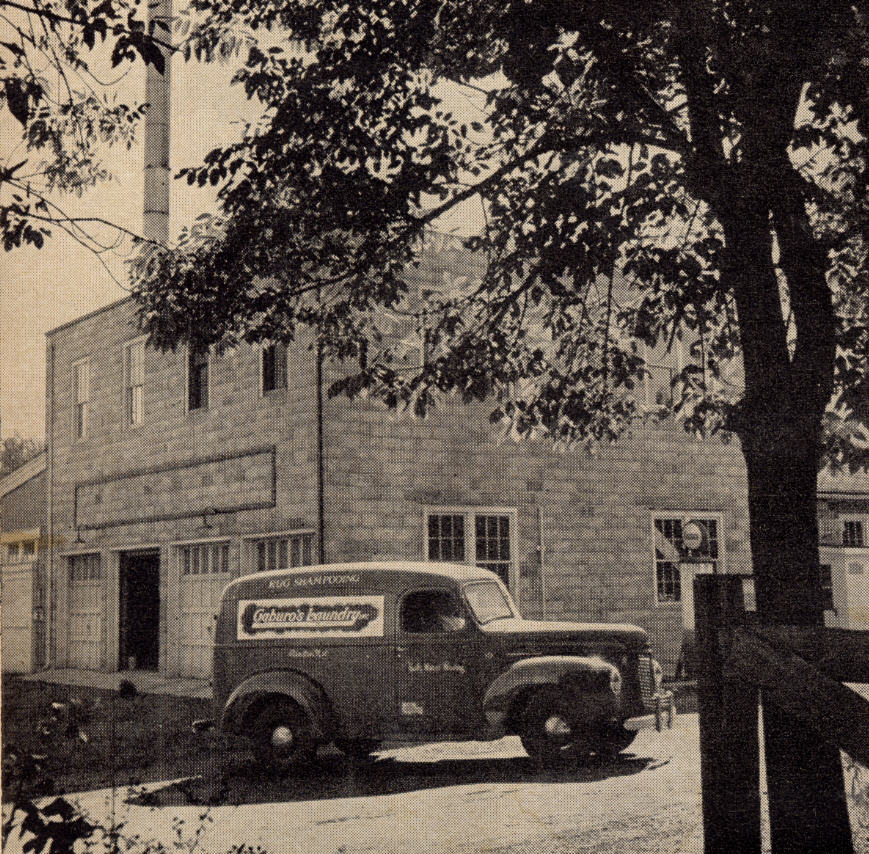

His first letter dated April 30th, 1944, was written during the grueling days of boot camp. He seems to have learned a few life lessons quickly writing:
You really can’t appreciate some of your friends until you go to some distant point and it is then that you ponder and wonder what you left behind.
He also seemed to enjoy the challenge of being a Marine:
The Marine Corp is a tough outfit, you work 20 hours a day and like it. And along with that you have to take a lot of criticism from the drill instructor. It is a tough life, but I really do like it. It’s kind of bad on me because of my age, but I do have the determination to be a good Marine.
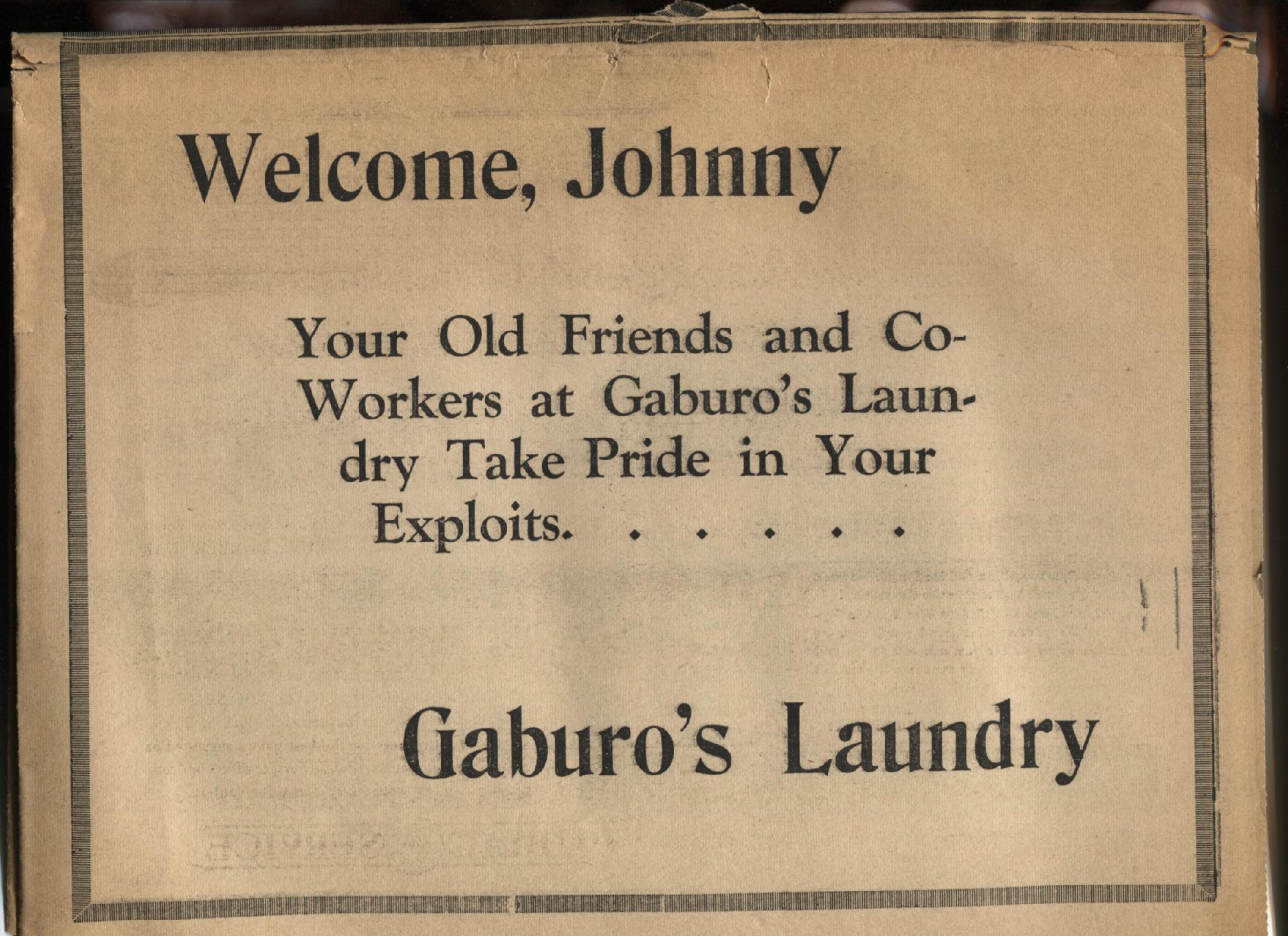
I received your package today and wish to take the opportunity to thank you immensely for your extreme thoughtfulness. It makes one feel swell to know that someone back home remembered. It wasn’t just the contents in the package, it is the sentiment that comes along with it.
As a guy who looked out for the soldiers, Al shared those packages with the other Leathernecks telling Tony:
Incidentally the (food) package that you sent did not last very long Tony. When we receive anything from home, we just yell “boys” come and get it – and before you know it, it’s all gone.
In this letter from August 1944, he echoes the sentiments that soldiers have for the fun places in their hometown:
Tony its Sunday afternoon and I could just picture the boys at the Centennial Tavern. Some busy at the bar, a group playing boss, others playing cards and shuffle board, and some just hanging around. I often think about that for it does bring back pleasant memories.
When he first arrived overseas in the Pacific on the island of Guam in Jan 4th, 1945, he still seemed to have a positive outlook on things as he wrote:
I have reached my destination safely thanks to the Navy. Censorship prohibits me designating the island that I am on. I’m somewhere in the Pacific. The island that I am on is a most beautiful one and just strewn with coconut trees. Just beyond the camp lies the beautiful blue Pacific reflecting its eight various colors of water. It is an ideal place for a vacation – after the war.
The only beer they serve us is Ballantine. While at home it didn’t taste so hot, here it is considered a premium beer, and it does taste pretty good. Beer is rationed to a case a month per individual. It is warm beer but it serves the purpose. The boys back home would refuse warm beer, but here we welcome it.
Al seemed to enjoy the centralized roles given to him.
I was appointed the Battalion’s mail clerk. I rather like the setup and find my work very interesting. Mail is something that the boys look forward to as it has a great tendency to uplift their morale.
He was at time humorous - in reference to his friends who hunted at home - he had this to say to them:
I presume the hunters at home would have the time of their lives out here. All the ammunition they want and the choice of weapon. The only bad feature about it is that the things you shoot at have a great desire to fire back.
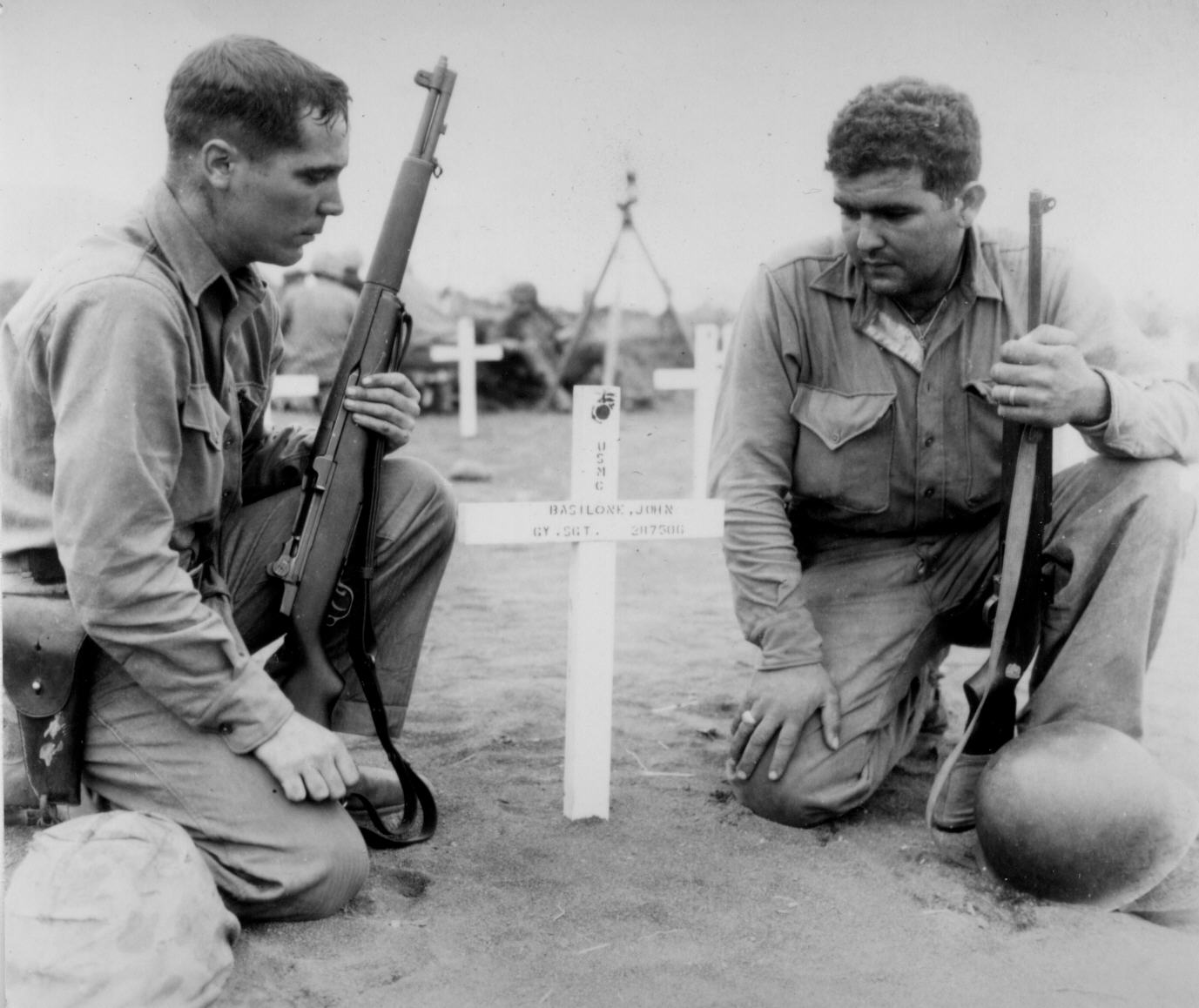
The death of John Basilone has been a very severe blow to me. It is something that is hard to believe. We will see him no more. Those of us that knew him can well remember his fine qualities. His name will go down in history and will be a living tribute to every boy in America. He will live forever. Father Russo (of St Ann’s in Raritan) has made preparations for a mass for John Basilone on the morning of May 19th. While mass is being said in Raritan I will kneel here and pay my respects at the same time. John’s brother George and I visited John’s grave on Iwo Jima many times. It was hard to do, but we had to pay our respects to one that was so close to us. We mourn his death as we do many others that made the supreme sacrifice. May his soul rest in peace.
Toward the end of the war, the Japanese refused to surrender; and Al gave his thoughts on them:
The nips are taking a terrible pounding by air and losing ground consistently. How much longer can they hold out? They know, as well as us, that victory for us is eminent. Yet they hate and fear shame, but damned they will be - each and every one of them.
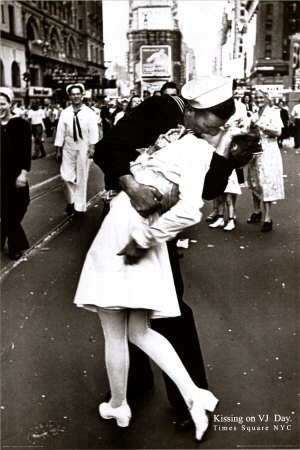
To us it meant that the horrors of war were a thing of the past. We received the news with a great deal of happiness. We celebrated by cheering and singing. Most of us went to the chapel and gave thanks to the Lord. It meant that we would no longer have to trust our luck. It meant we would soon be returned to our loved ones. From the reports that I get, I rather surmised that you boys in Raritan had a hell of a good time upon hearing of Japan's surrender. Your letter to me was self-explanatory. I could readily see that you were one happy person … I was happy to note that you made your promise good Tony. I well remember the day when you told me the very words that "your place would be open to everyone when final victory came!" I do admire you for your sincerity … I could just picture the gang parading the streets of Raritan, drunker than hell. I'll bet they even brought their bottles along with them. Lucky Stiffs.
After the war, Al would be involved in many local organizations. He was very active in the Raritan Chamber of Commerce and the Somerville Elks where he served as the exalted ruler. In 1973, the family sold Gaburo’s Laundry and Al Gaburo retired to Florida. In 1986 he developed lung cancer, but he avoided telling anyone that he did not have to, including most of his family as he did not want anyone to worry. He passed away in February of 1987.